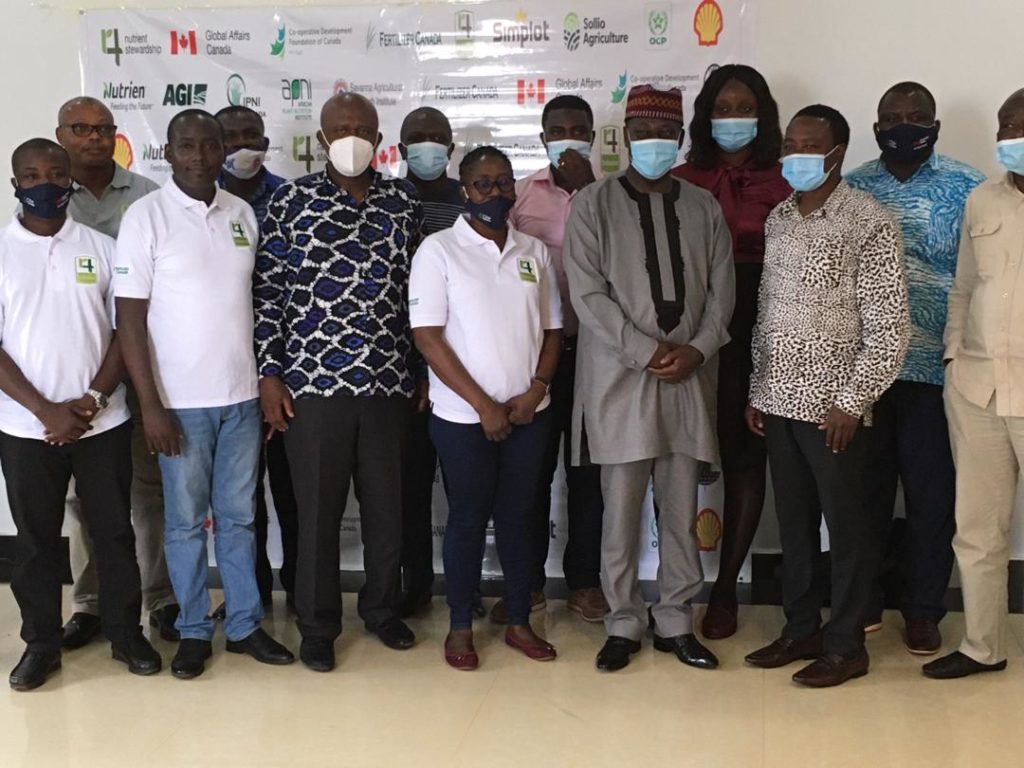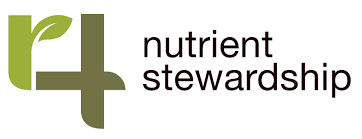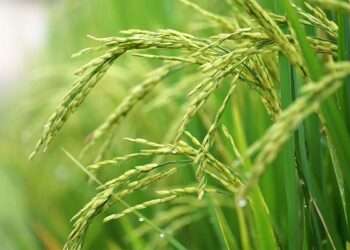The Co-operative Development Foundation of Canada (CDF) in partnership with Global Affairs Canada, and Fertilizers Canada is introducing the evidence-based 4R Nutrient Stewardship Project (4R-NSP) to peasant farmers in the Northern and Savannah Regions to boost their productivity.
The Country Manager for CDF, Christiana Kankani Yakubu revealed that “the project is targeting about 30,000 small-scale farmers in the Nanumba North and South districts, Kpandai and East Gonja.”
In an interview with Joynews on the sideline of the inauguration of the 4R-NSP National Advisory Committee, Mrs. Yakubu said the five-year project is aimed at sensitizing farmers on the application of fertilizer in terms of the source, rate, time and place, to help reduce cost, and increase yield.
“most farmers do not know when and how to apply fertilizer to their crops; the reason why CDF is introducing the 4R”.
Country Manager for CDF, Christiana Kankani Yakubu.
She said the project is also focused on identifying key constraints limiting small-scale farmers cultivating groundnut, soya bean and rice in the four districts in Ghana that are participating in the 4R-NSP project.

The Head of Programs of the Peasant Farmers Association of Ghana (PFAG), Mr. Charles Nyaaba, who represented the farmers said his role in the training is to identify the advantages and disadvantages of the project, and if need arises ensure some amendments that would benefit the farmers.
He said one of the major constraints facing small scale farmers in the country is cost of production, adding that greater part of it comes from fertilizer.
He said because farmers have little knowledge on the application of fertilizer, they end up applying more than necessary which adversely causes depletion of farm lands.
“If they increase the application of fertilizer, it also means increase in cost of production,” he added.”
Mr Nyaaba said the project will educate farmers on fertilizer application, and how to combine soil nutrients for productivity.
He expressed enthusiasm about the 4R project saying government spends so much to subsidize fertilizer for farmers but at the end of the day, there is no desired results.
“So, if this project will help farmers reduce cost, it’s in the right direction,” he said.
On his part, the Director of Crop Service at the Ministry of Food and Agriculture, Dr. Osei Akoto said the objective is in line with the government’s ‘Planting for Food and Jobs’ program.
He, however, disputed claims that there was a shortage of fertilisers in some parts of the country.
He explained that farmers in places like Saboba experienced challenges in the fertilizer distribution due to the issues of smuggling.
But since he is personally involved in the distribution of the fertilizer to various farmers across the country, he can confirm that there was no issue of shortage elsewhere.
The 4R Nutrient Stewardship Project (4R-NSP) is expected to enhance sustainable production using climate-smart best management practices in agriculture, to enhance representation and influence of women in leadership positions and decision-making bodies in co-operatives, and to increase integration of gender sensitive 4R principles in relevant standards and policies in Ghana.
The project targets more than 80,000 smallholder farmers, half are women and it is currently active in Ghana, Ethiopia and Senegal.





















